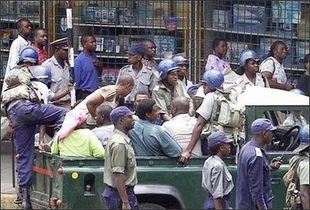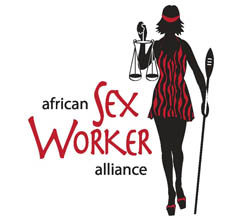Delegates from the African Sex Worker Alliance (ASWA) and a church leader from Nigeria gathered in Pretoria from the 28th September to 10th October for a second historic meeting as a follow up to the first ever African sex worker lead conference in February 2009.
Sex work is an important feature of the transmission dynamics of HIV within early, advanced and regressing epidemics in sub-Saharan Africa.
HIV prevalence among sex workers and their clients is commonly 20 fold higher than the general population.
Together, these factors may contribute to a differential in HIV transmission potential of more than 1000 times compared with lower-risk populations. Yet, in much of Africa, there is little evidence that transmission of HIV and other STIs in sex work settings has been controlled.
Sex work remains an important contributor to HIV transmission within early, advanced and regressing epidemics in sub-Saharan Africa, but its social and behavioral underpinnings remain poorly understood, limiting the impact of HIV prevention initiatives. This article systematically reviews the socio-demographics of female sex workers (FSW) in this region, their occupational contexts and key behavioral risk factors for HIV. In total 128
relevant articles were reviewed following a search of Medline, Web of Science and Anthropological Index.

This report documents human rights violations experienced by female, male and transgender sex workers in four African countries (Kenya, Uganda, South Africa and Zimbabwe), and describes barriers they face to accessing health services. Through cross-country comparison and documenting sub-regional trends, the study moves beyond previous often-localised descriptions of violations against sex workers in Africa. The study also fills information gaps about violations in male and transgender sex workers in this setting.
The aim of the research presented in this report was to explore the social contexts, life experiences, vulnerabilities and sexual risks experienced by men who sell sex in Southern and Eastern Africa, with a focus on five countries; Kenya, Namibia, South Africa, Uganda and Zimbabwe. It sought to better understand differing and similar socio-cultural scenarios and personal life stories of male sex workers in these countries and to improve the representation of male sex workers in relevant regional organisations, particularly within the African Sex Workers Alliance (ASWA).
 The African Sex Worker Alliance (ASWA), Bar Hostess, Sisonke and SWEAT in conjunction with the Ford Foundation, OXFAM NOVIB, UNDP and OXFAM GB are to launch research on human rights violations against sex workers.
The African Sex Worker Alliance (ASWA), Bar Hostess, Sisonke and SWEAT in conjunction with the Ford Foundation, OXFAM NOVIB, UNDP and OXFAM GB are to launch research on human rights violations against sex workers.

The Regional Dialogue will take place on 3-4 August 2011 in Johannesburg, South Africa. In addition to giving voice to regional and country perspectives on issues of HIV and the law, the dialogue aims to contribute to regional efforts for creating enabling legal environments which support effective HIV responses.
The Commission looks forward to hearing from you if you have worked or presently work in Africa on the following issues.
(1) Laws and practices that effectively criminalise people living with HIV and vulnerable to HIV;
A significant police backlash is being felt by sex workers around the country following human rights events for the International Sex Worker Rights Day on March 3rd.
A Publication by Akina Mama wa Afrika (AMwA), written by Zawadi Nyong’o and edited by Christine Butegwa and Solome Nakaweesi-Kimbugwe.
AMwA has been working in partnership with sex worker activists in Uganda and other countries in East Africa. This oral history project allowed women to speak for themselves to try and better understand the politics behind sexuality, sexual rights and sex work.
The research tries to present the multiple dimensions of women’s lives,
An article by Leclerc P M & Garenne M in Int J STD AIDS. 2008 Oct;19(10):660-4. The study compares the association between buying sex and male HIV seroprevalence in Ghana, Kenya, Lesotho, Malawi and Rwanda. Given the relatively small proportion of men involved, the risk attributable to ‘ever paying for sex’ remained low suggesting that commercial sex seems may play a minor role in the spread of HIV in mature epidemics.

